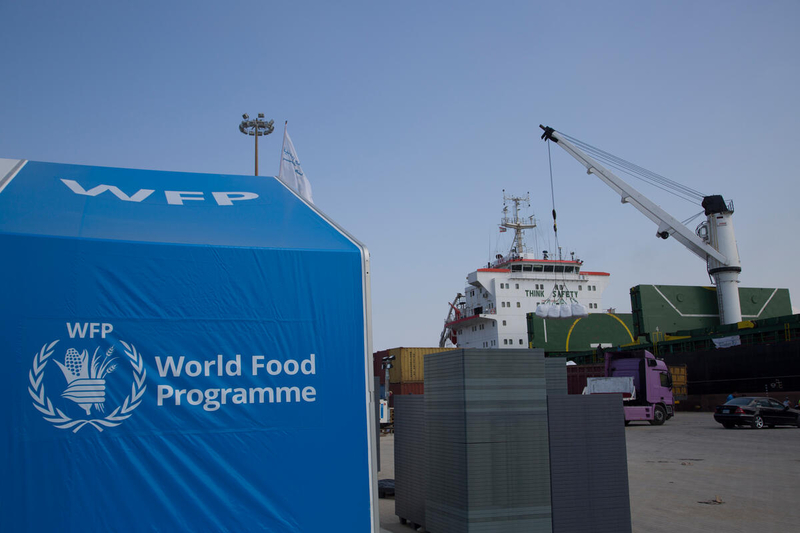One Year Later: The First Anniversary of the Beirut Port Explosion
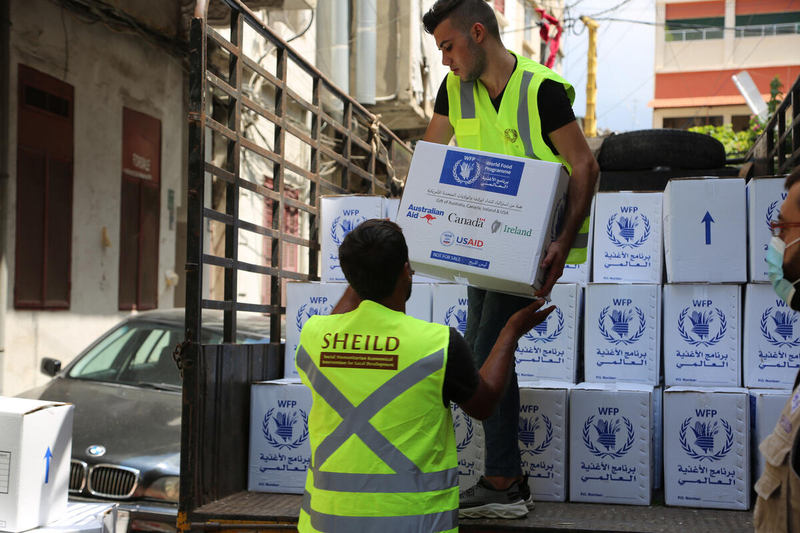
One year ago, just after 11:00 am on Tuesday, August 4th, the earth shook on the island of Cyprus. 150 miles away, a fire engulfed the Port of Beirut, sent shockwaves across the Mediterranean and rocked Lebanon to its core.
A Blast Heard Across the Sea
The explosions that reverberated across Beirut on August 4th 2020 devastated swathes of the city. More than 200 people were killed, 6,000 more injured and an estimated 300,000 individuals displaced from their homes. The port, through which 70 percent of Lebanon’s entire trade transits, also housed grain silos that were reduced to rubble.
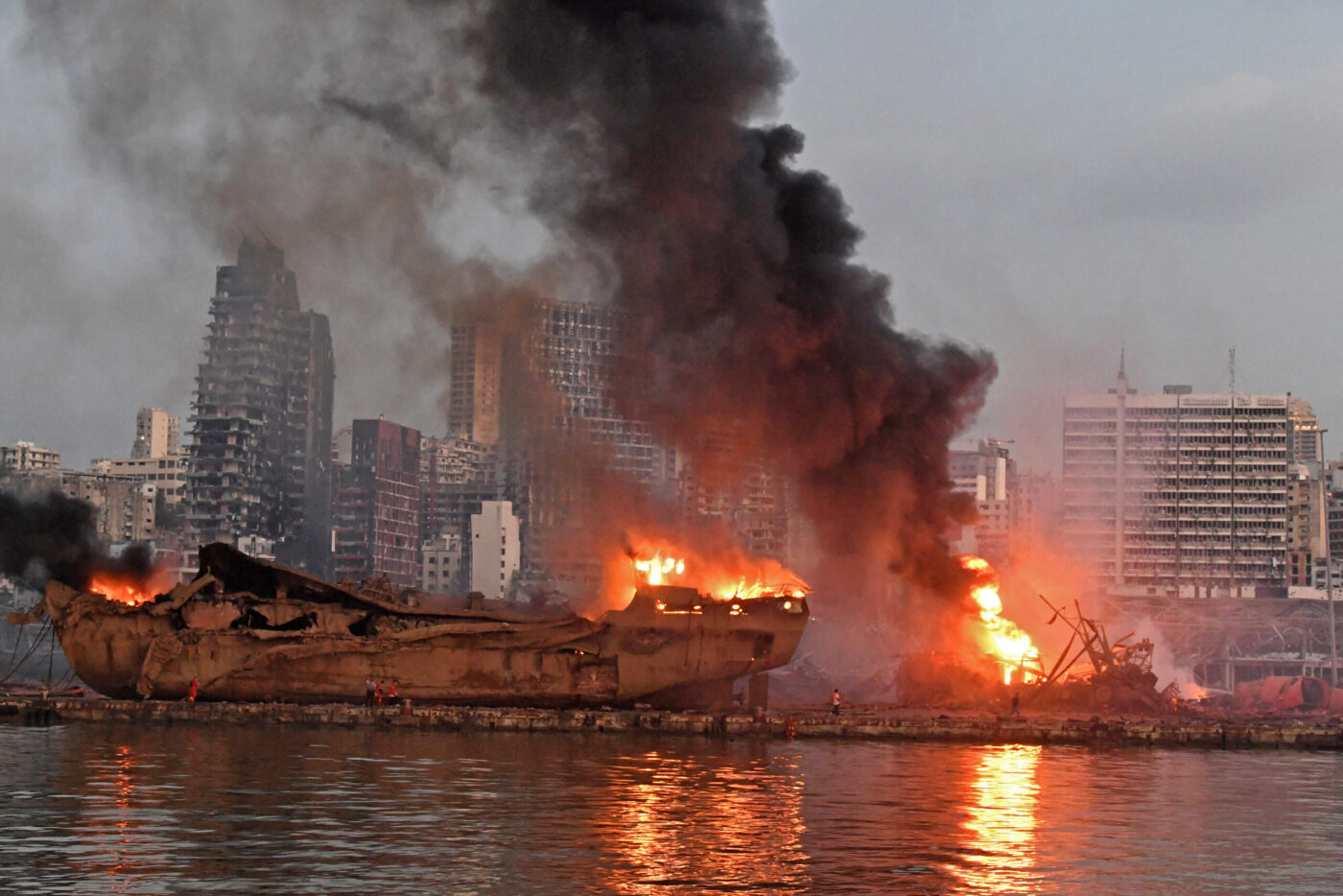
At a time when the worst fears surrounding the COVID-19 pandemic were coming to fruition, the blasts left Lebanon reeling from multiple crises.
“The blast came as Lebanon was dealing with two other severe shocks: the ongoing economic crisis and the impact of the COVID-19 lockdown measures. Families have been struggling to meet their basic needs even prior to the explosion,” said United Nations World Food Programme (WFP) Representative and Country Director in Lebanon Abdallah Alwardat last August.
While the dust was still settling from the explosion, the U.N. World Food Programme arrived on the scene to provide aid.
In the immediate aftermath of the blast, we:
- Distributed food bundles to 11,000 people
- Supported communal kitchens through local partners and NGOs, helping to serve 3,000 hot meals a day in the explosion-affected areas
- Imported 27,557,783 pounds of wheat flour into Lebanon to boost food security and keep food prices stable
- Reached 90,000 people with cash assistance in the weeks following the blast
- Provided support to over 200 businesses affected by the explosion, including 53 women-owned firms. Resources provided included cash assistance to cover workers’ salaries, infrastructure rehabilitation and the purchase of new equipment.
A Country Slipping Into Catastrophe
The combined effects of the blasts, COVID-19, a weakening local currency and political instability have driven droves of people into hunger and poverty.
- Nearly half (48 percent) of all Lebanese and 90 percent of Syrian refugees across the country are hungry.
- Nine out of ten Syrian refugee families are living in extreme poverty.
- Food prices have skyrocketed to over five times what they were in October 2019. Staple foods like oil and lentils are no longer affordable for millions of households.
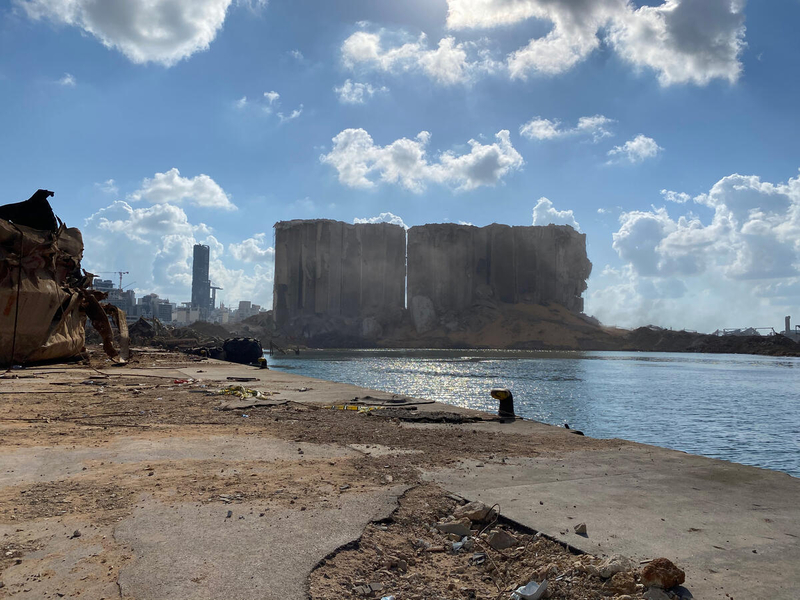
“The Beirut Port Explosion is not just a memory of something that happened a year ago. It is a reality that still haunts the people of Lebanon in every aspect of their lives,” says Abdallah Alwardat, the U.N. World Food Programme Representative and Country Director in Lebanon.
The Path Forward
Short and Long-Term Solutions
Today, the U.N. World Food Programme is providing food and cash assistance to 1.4 million Lebanese nationals and Syrian refugees in Lebanon.
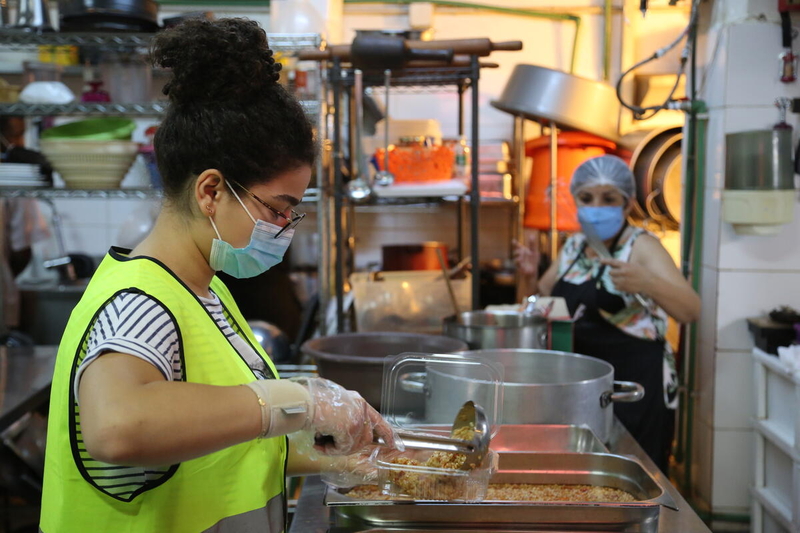
The U.N. World Food Programme is assisting one in six people in Lebanon, the highest number of people at any time in its history.
Through cash-based transfers, we have injected $11.7 million into the local economy to offset the effects of the financial crisis. Lebanon remains one of our countries of highest concern and was one of the top five countries to receive support from our global COVID-19 funding appeal.
Innovation Amidst Crises
Despite the relentless challenges of the last year, the U.N. World Food Programme has continued to develop innovative solutions and procedures to reach vulnerable people in Lebanon. Following the Port explosion, we launched Lebanon’s Food System Grant Facility (FSGF). This tool is used to support micro, small and medium sized businesses on all levels of the Lebanese food system including:
- grocery shops
- butcheries
- bakeries
- fruit and vegetable shops
- cafes
- home-based catering services
- and restaurants
Through the FSGF tool, technical support and relief grants are provided to businesses affected by shocks like the Beirut Port explosion.
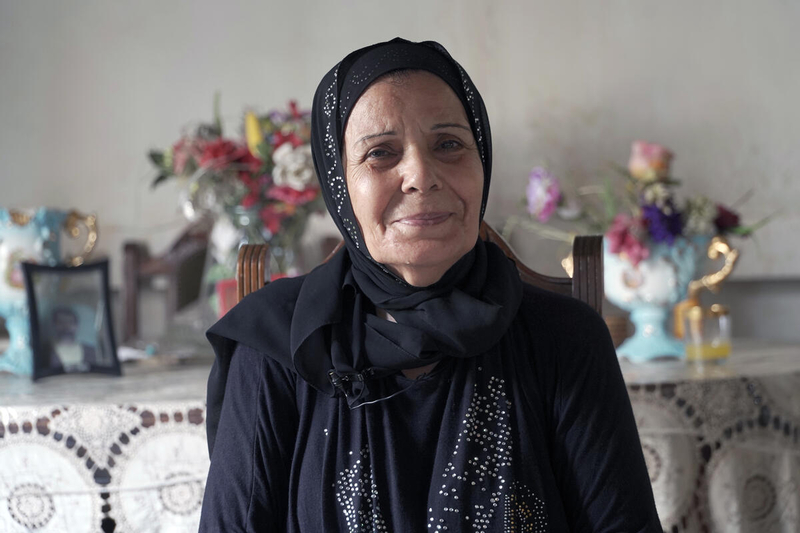
In June 2021, we reached 33,000 families affected by the economic crisis with food assistance. By October, we plan to reach 100,000 families.
In September of 2020, we also launched the Payment Instrument Tracking (PIT) system in Lebanon to support the secure management of payment methods like e-cards, debit and credit cards, and SIM cards. The use of PIT will be expanded to all other country offices in the coming years to ensure the people we serve have access to the most effective, safe payment methods — even during a crisis.
As Lebanon walks the road to recovery from the Beirut blast, COVID-19, and ongoing financial crises, the U.N. World Food Programme has been and will continue to be there every step of the way to provide aid.
To learn more about our work in Lebanon, click here.
